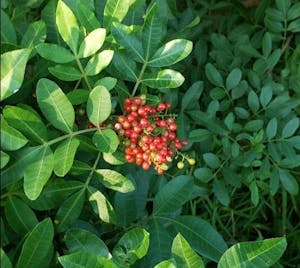The Brazilian Pepper Tree Invasion: A Thorn in Florida’s Mangrove Ecosystem

The Brazilian Pepper Tree Invasion:
Florida’s mangrove ecosystems are a unique and vital part of the state’s coastal landscape. These intricate coastal forests provide essential habitat for countless species, protect against erosion, and filter water to maintain water quality. However, this delicate balance is threatened by invasive species, with the Brazilian pepper tree (Schinus terebinthifolius) being one of the most notorious invaders.
The Brazilian pepper tree, also known as the Florida holly or Christmas berry, is an invasive plant species that has wreaked havoc on Florida’s mangrove ecosystems. Originally introduced as an ornamental plant in the 19th century, it has since become one of the state’s most invasive plant species, outcompeting native vegetation and disrupting the ecological balance.
Impact on Mangrove Ecosystems:
- Altered Hydrology: The Brazilian pepper tree disrupts the natural water flow within mangrove ecosystems. Its dense growth forms a barrier that impedes water movement and traps sediments, leading to changes in water flow patterns and altered hydrology.
- Suppression of Native Plants: The aggressive growth of Brazilian pepper trees shades out native mangrove species, preventing them from getting the sunlight they need for photosynthesis. This reduces the diversity of plant life in mangrove habitats.
- Reduced Wildlife Habitat: Mangroves are a vital habitat for various wildlife, including birds, fish, and invertebrates. The invasion of Brazilian pepper trees diminishes the quality of this habitat by displacing native vegetation and reducing food availability for native species.
- Increased Fire Risk: Brazilian pepper trees are highly flammable, increasing the risk of wildfires in mangrove areas. These fires can devastate the entire ecosystem, destroying habitats and altering soil composition.
Control and Management Efforts:
Efforts to control the spread of Brazilian pepper trees in Florida’s mangrove ecosystems have been ongoing for years. Methods include:
- Herbicide Application: Herbicides selectively target Brazilian pepper trees while minimizing harm to native species. Careful application is essential to avoid collateral damage to desirable vegetation.
- Mechanical Removal: Manual removal of Brazilian pepper trees involves cutting and uprooting the plants. This labor-intensive method can be effective for smaller infestations.
- Biological Control: Introducing natural predators, such as the Brazilian peppertree leaf-mining beetle, has shown promise in controlling Brazilian pepper tree populations.
Conclusion:
The Brazilian pepper tree invasion significantly threatens Florida’s mangrove ecosystems. Its ability to alter hydrology, suppress native plants, reduce wildlife habitat, and increase fire risk underscores the importance of ongoing efforts to control and manage this invasive species. Protecting the integrity of these vital coastal ecosystems is essential for preserving Florida’s natural heritage and safeguarding the numerous ecological services they provide.
#invasivespecies #floridafacts #ecotourism #ecotour #brazilianpepper #factoftheday #latitudestours #thingstodotampa #didyouknow
